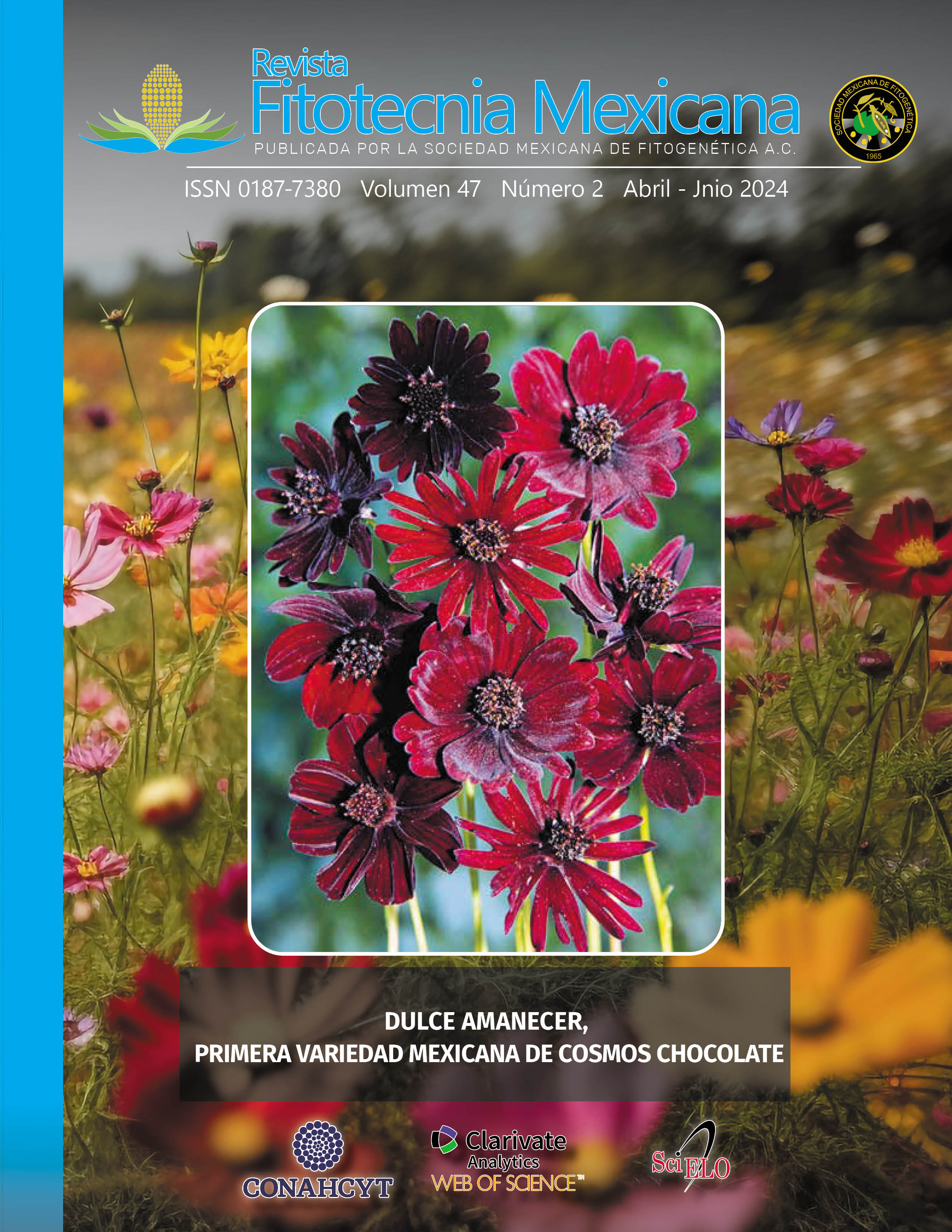EFFECT OF NITROGEN ON YIELD AND SEED QUALITY OF WHEAT IN EL BAJÍO, MEXICO
Main Article Content
Abstract
Recently, the cost of fertilizers has increased, which affect the production of wheat (Triticum aestivum L.) seed, so it is important to optimize resources within production systems. The objective of this study was to determine the appropriate dose of nitrogen fertilization (DN) for wheat seed production, as well as its effect on physiological seed quality in the Bajio region of Mexico. In the Autumn-Winter 2017-2018 agricultural cycle the Urbina S2007 variety was evaluated at six locations in the states of Guanajuato and Michoacan, Mexico, in combination with DN of 0, 60, 120, 180, 240 and 300 kg ha-1. The traits measured in the field were yield (t ha-1), grains per spike and spikes per square meter. In the laboratory, seed vigor, standard germination (%) and plumule length (cm) were evaluated as part of the physiological seed quality. Combined analysis of variance across localities was performed under a randomized complete block design. The effect of DN generated 70 % of the total variability observed in yield, but a different situation was observed in vigor and germination, where localities contributed more than 88% of the variability. Yield and physiological quality of seed increased as a function of DN; however, a turning point was observed at 240 kg N ha-1, suggesting that
the application of 240 kg of N ha-1 is the optimal dose to improve seed yield without deterioration of its physiological quality.

